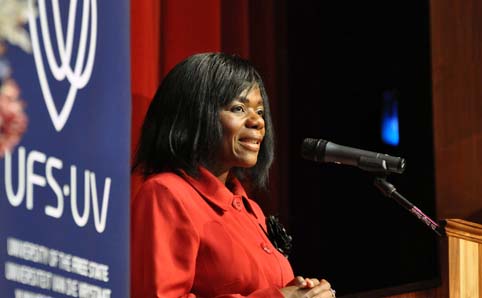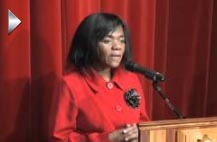 |
|
Adv. Madonsela condemns corruption and poor service delivery in South Africa.
20 April 2012
|
Audio of the lecture

Video of the lecture
Apartheid cannot be blamed for poor service delivery in the country - corruption should shoulder the blame. Eighteen years into democracy, South Africa still has a long way to go before it becomes the society it envisaged for itself.
“We are not there yet,” South Africa’s Public Protector, Adv. Thuli Madonsela, told a packed Wynand Mouton Theatre on the University of the Free State’s Bloemfontein Campus on Tuesday 17 April 2012. She delivered a public lecture on “Academic freedom and corruption in the context of secrecy laws”.
“Are we closer to becoming a society where values such as human dignity are sacrosanct, where freedom for everyone is the order of the day?” Adv. Madonsela asked the audience comprising students, academics and community members. She said corruption is the silent thief that steals the country’s constitutional dream, causing the poor to live undignified lives.
Adv. Madonsela appealed to students and academics to help retrieve the constitutional dream. In encouraging academic discourse on corruption, she said corruption is not only one person’s problem, but that of everybody. She told academics they could help develop the law and so help in the fight against corruption.
Adv. Madonsela, who spent most of Tuesday on the Bloemfontein Campus, met with senior management from the university as well as students earlier.
Her public lecture late on Tuesday afternoon had the Wynand Mouton Theatre bursting at the seams. Some members of the audience sat on the steps inside the theatre to hear the lecture.